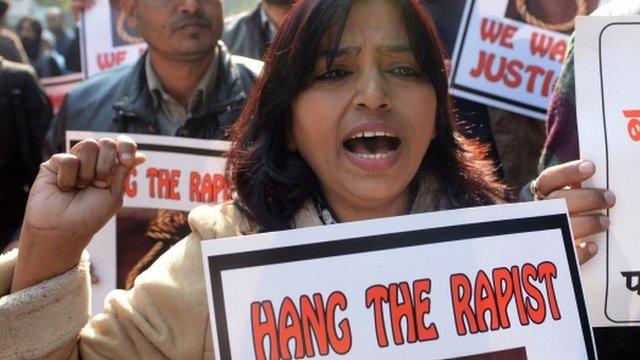Profiles: Who were the Delhi gang rape convicts?
- Published
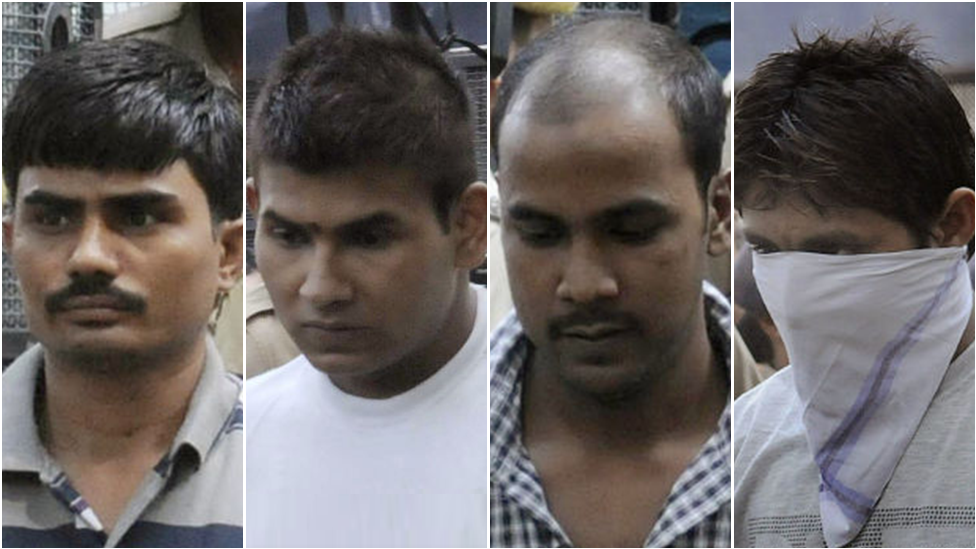
From left to right: Akshay Thakur, Vinay Sharma, Mukesh Singh and Pawan Gupta
Four men convicted of the notorious gang rape and murder of a student in the Indian capital Delhi in 2012 have been executed.
Mukesh Singh, Vinay Sharma, Akshay Thakur and Pawan Gupta were hanged on the premises of the Tihar jail.
Courts convicted six people for the rape and murder of a 23-year-old physiotherapy student in a moving bus.
However, one who was a juvenile at the time, was released in 2015 after serving three years in a reform facility.
Another died in jail.
In the last few months, all four men filed petitions in the Supreme Court in a bid to reduce their sentences to life imprisonment. But the top court rejected their petitions, leaving the men with no other legal recourse. A last minute appeal to have the death penalties commuted in the Supreme Court was also rejected hours before the executions were carried out.
Here are brief profiles of the convicted men.
Mukesh Singh
Mukesh was convicted along with his brother Ram Singh, who died in jail in March 2015
Mukesh used to live with his brother in a two-room shanty in the Ravi Dass slum and worked as an occasional driver and cleaner on the bus.
He was charged with raping the victim, and also for brutally beating the woman and her male friend with an iron rod - he had denied the charges.
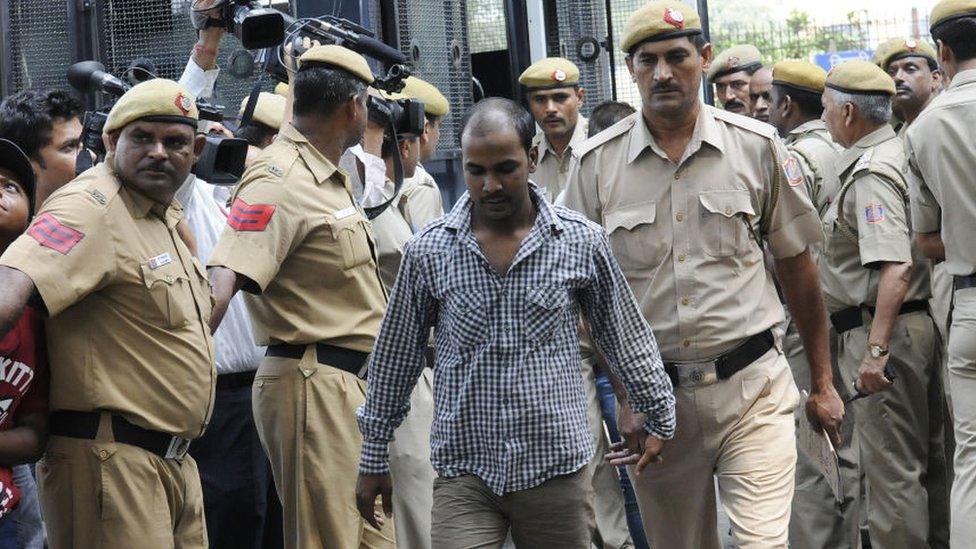
Mukesh Singh did not sound remorseful about the crime in the BBC documentary, India's Daughter
It was alleged that he - and not Ram Singh - was driving the bus when they picked up the couple from a stop outside a popular mall, where they had gone to watch a movie.
Reports at the time quoted Mukesh Singh as saying that he was driving the bus while the other five raped the woman and assaulted the couple.
His lawyer has claimed that his client had been abused and tortured in jail - charges that were later denied by prison authorities.
In a later petition weeks before his execution, he claimed that he was a juvenile but the court rejected it.
He was also the subject of a 2015 BBC documentary called India's Daughter where he blamed the victim for what happened to her.
"A decent girl will not roam around at nine o'clock at night. A girl is far more responsible for rape than a boy. Housework and housekeeping is for girls, not roaming in discos and bars at night, doing wrong things, wearing wrong clothes," he said.
The death penalty, he said, "would make things even more dangerous for girls".
"Now when they rape, they will not leave the girl like we did. They will kill her."
The documentary revived public outrage over the incident.
Vinay Sharma
A gym assistant and fitness trainer, Vinay Sharma also lived in the Ravi Dass slum.
Of the five convicted, he was the only one who had a school education and spoke English.
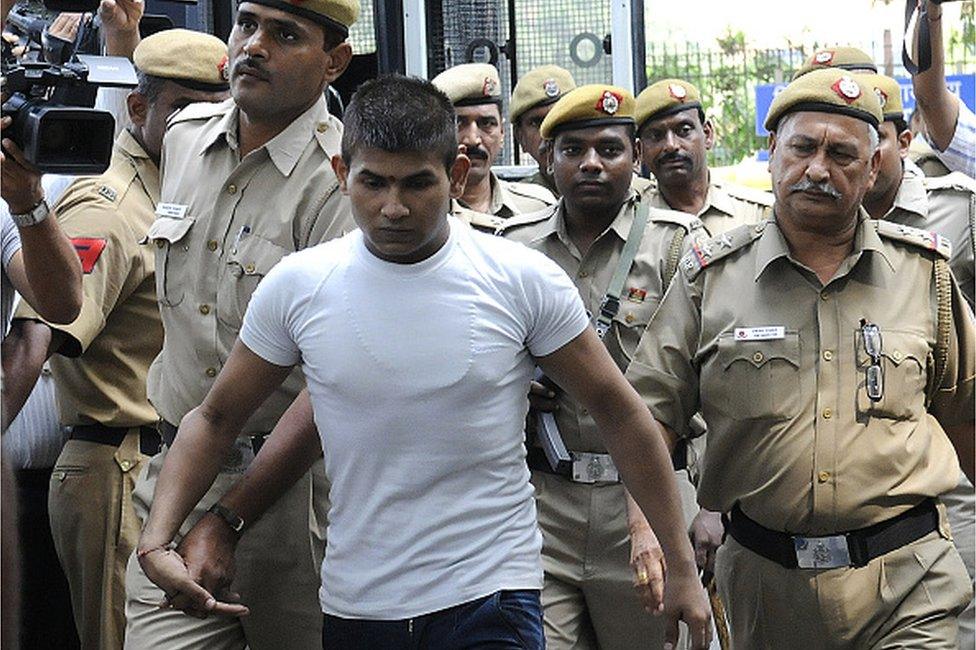
Vinay Sharma was a fitness trainer
In 2015, he sought a month's bail to sit his first-year university examination - a request turned down by the judge who ordered the university officials and jail authorities to make arrangements for him to sit his exams inside prison.
In court, Vinay Sharma had previously claimed that he was not on the bus when the crime took place and that he had gone to a concert along with co-accused Pawan Gupta.
When he was sentenced to death in court in 2013, he broke down in tears.
Akshay Thakur
A helper on the bus, Akshay Thakur had migrated to Delhi from the northern state of Bihar.
He was arrested on 21 December 2012 - five days after the crime.
Along with rape, murder and kidnapping, he was convicted of trying to destroy evidence by helping to wash the bus after the attack.
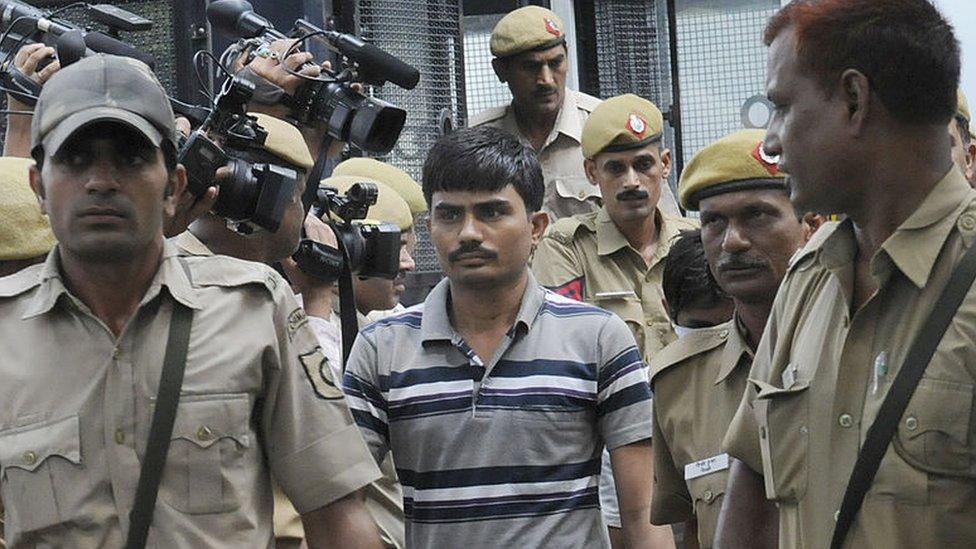
Akshay Thakur came to Delhi from the eastern state of Bihar
In court, he denied being on the bus and said that he left Delhi on 15 December - a day before the crime - and had reached his village in Bihar the next day.
He was nevertheless convicted and handed the death sentence.
Pawan Gupta
Pawan Gupta, who worked as a fruit-seller, previously claimed in court that he was not on the bus at the time of the crime and had gone to attend a concert with Vinay Sharma.
His father, Heera Lal, who appeared as a witness in the trial court, said his son was "innocent" and had been "falsely implicated".
He added that his son had closed his fruit shop in the afternoon on the day of the incident and left for home.
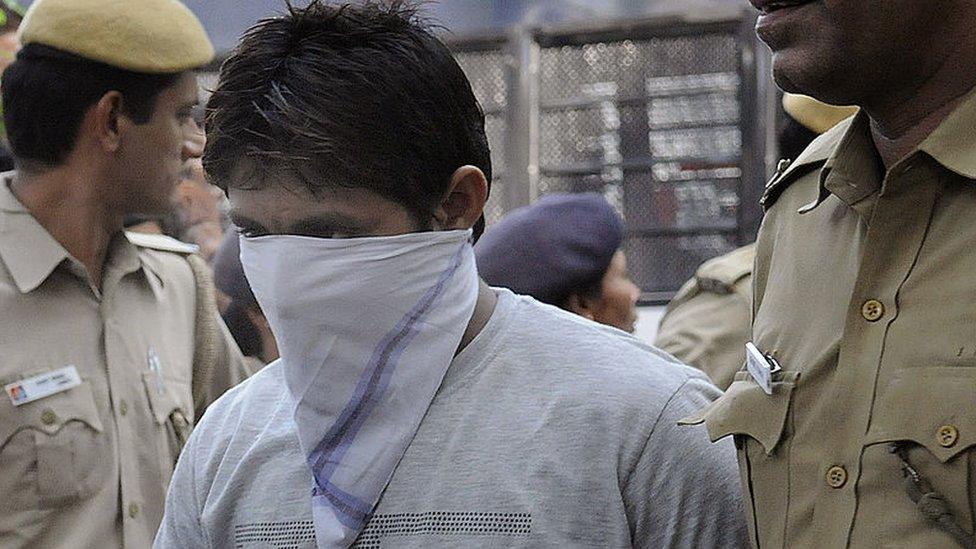
Pawan Gupta worked as a fruit-seller
After consuming alcohol and eating chicken at home, he had gone to a nearby park to attend the concert.
According to reports, in the days after his arrest, Pawan Gupta said in court that he had "done a horrible thing... I have done a bad thing and I should be hanged", but his lawyer later denied he had made the statement.
Along with the other three defendants being tried as adults, he was sentenced to death.
Convicted juvenile
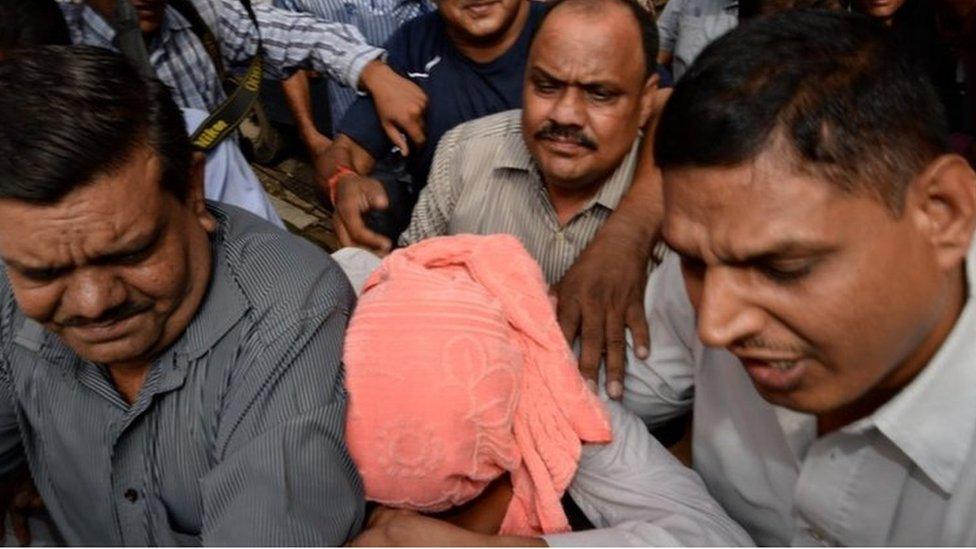
The sixth convict was a minor when he was convicted and was sentenced to three years in a reform facility
The sixth defendant's name cannot be given for legal reasons. He was 17 at the time of the crime and was tried as a minor. He is now an adult.
He was found guilty on charges of rape and murder and sentenced to three years in a reform facility - the maximum sentence available to a juvenile.
The eldest of six children, he left his village in the northern state of Uttar Pradesh at the age of 11, and lived his formative years alone, doing menial jobs in Delhi.
His mother told the BBC earlier that she thought he was dead until police came knocking on her door in December 2012 and told her he was one of the accused in the gang rape case.
She said he used to send the family money for a few years and then disappeared. His mother insisted that he was a "gentle" boy.
"He was a very sensitive child and would be scared to confront anybody in the village. I'm sure he fell into bad company in Delhi and was led into committing this shameful act," she said.
He was released from a correctional centre on 20 December 2015, despite protests and legal challenges.
His identity has been changed and no record of his crime will remain in the public domain.
Ram Singh
The man described as the main suspect, Ram Singh, was found dead in Tihar jail in March 2015. Police said he had hanged himself, but defence lawyers and his family alleged that he was murdered.
His father, Mangelal Singh, said Ram Singh would not have been able to orchestrate a suicide because he only had the effective use of one arm - he had damaged his right arm in a driving accident in 2009.
A widower, he lived in a small two-room shanty in the Ravi Dass slum colony in southern Delhi.
He was the alleged driver of the bus on which the 23-year-old woman was raped and her male friend assaulted.
He is remembered by his neighbours for being a troublemaker who frequently got involved in drunken brawls.
Like many migrants, his family came to Delhi from their village in the western state of Rajasthan more than 20 years ago in search of a better life.
The third of five brothers, Ram Singh was enrolled into the neighbourhood government school but dropped out while still at primary level.
He was the first person to be arrested for the 2012 gang rape.
- Published20 March 2020
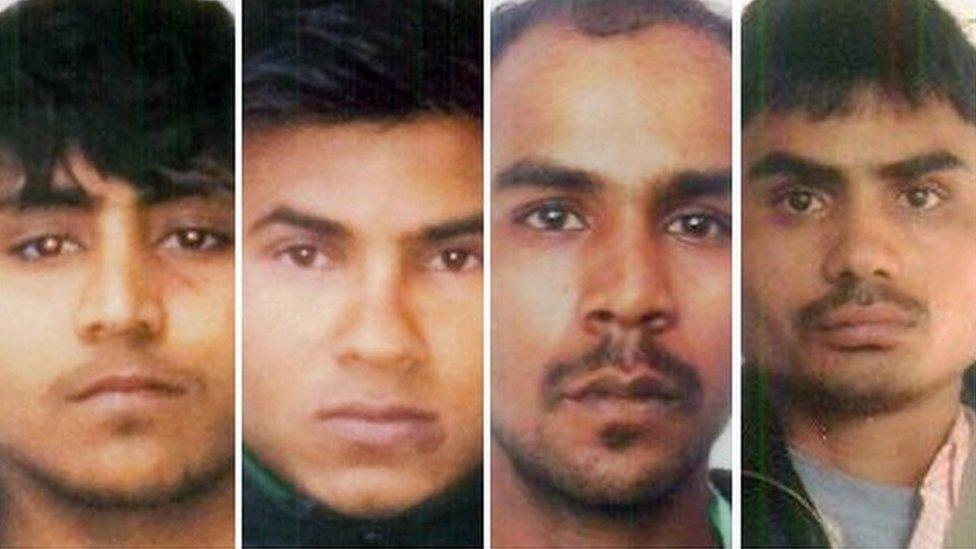
- Published28 January 2013
